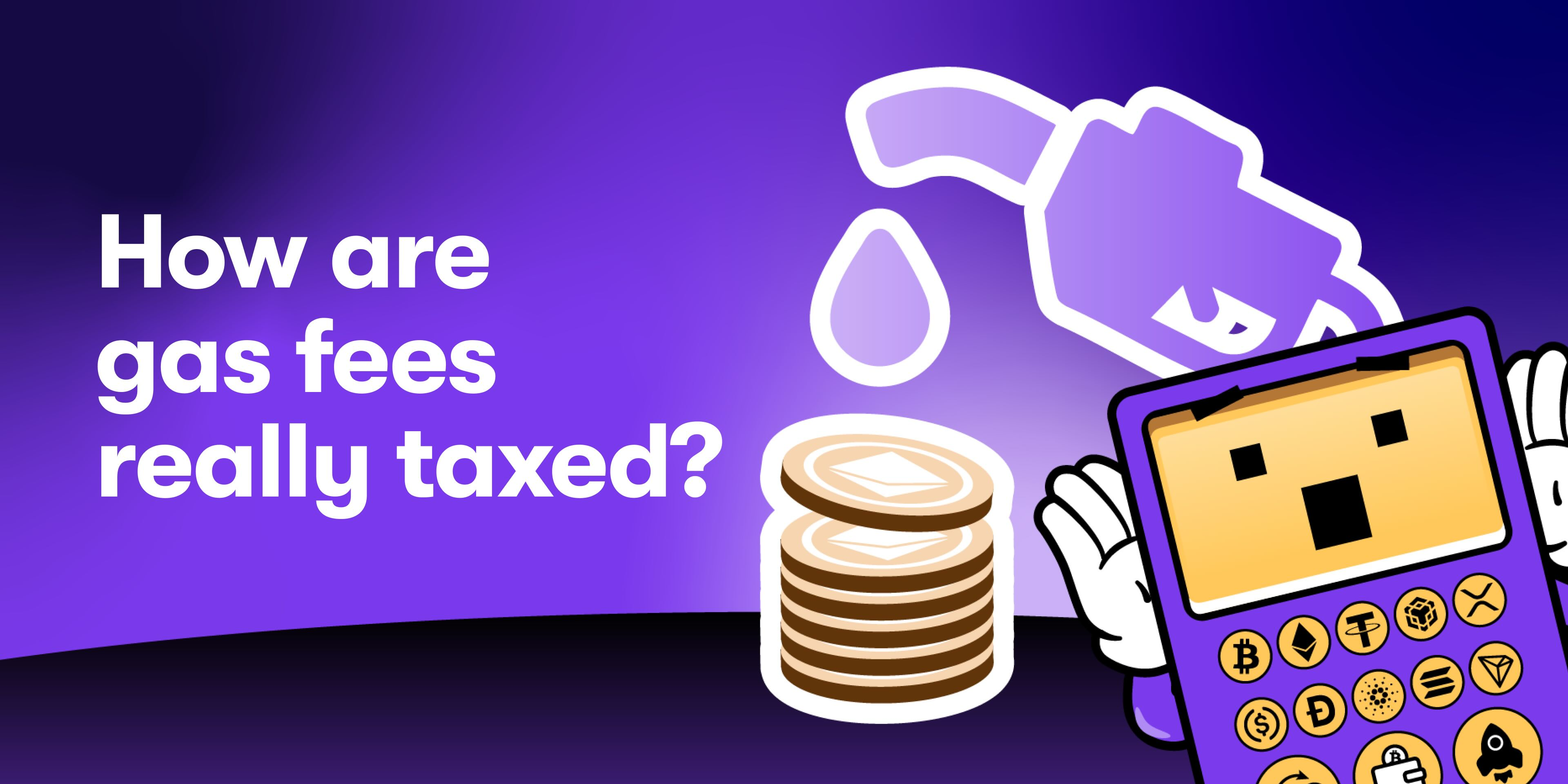This guide will provide an overview of the tax laws and regulations that apply to cryptocurrencies in Italy, including calculating your taxes and reporting your crypto transactions to the Italian tax authority, Agenzia Entrate. It will also include useful tips and resources to help you navigate Italy's complex world of crypto taxation. Whether you are a casual crypto user or a professional trader, this guide will provide you with the information you need to understand and comply with the tax laws in Italy.
Is Crypto Taxed in Italy?
Yes, cryptocurrency (criptovalute) is taxed in Italy.
This means that any gains or profits you make from your crypto transactions are subject to capital gains tax If your portfolio has exceeded €51,645.69 for seven consecutive days during the tax year.
How is Crypto Taxed In Italy?
As mentioned above, crypto assets are subject to capital gains tax in Italy if ****your portfolio has exceeded €51,645.69 for seven consecutive days during the tax year. This means that any profits from buying and selling crypto assets are taxable at the capital gains rate of 26% and must be declared on the individual's tax return. The 26% rate is the same across all capital assets, not just crypto.
Individuals who receive crypto assets as income or as payment for goods or services are also subject to income tax on the value of the assets received. There is no specific guidance for activities such as mining or staking. Taking a conservative approach, one would be best to report these as income or speak to a tax professional about your exact situation.
It is important for individuals to accurately track and record their crypto transactions to declare them on their tax returns properly. Failure to do so may result in penalties and fines.
This is good news for Italian crypto investors since they don’t need to pay taxes on profits as long as their total portfolio value does not exceed €51,645.69 for seven or more consecutive days.
The Agenzia Entrate has not commented on how DeFi and NFTs should be taxed. A disposal of an asset such as an NFT would likely be viewed as a capital gains event, and any rewards gained from DeFi activities may fall into the income component of Italian taxes. It is best to speak to a tax professional regarding these activities.
Does Agenzia Entrate know about my crypto holdings?
Despite popular belief, cryptocurrency is extremely easy to track and is not as anonymous as many believe. Due to much stricter regulation around cryptocurrency exchanges and digital asset investment, almost all exchanges require users to complete a ‘Know-Your-Customer’ (KYC) identification application before the account can be used to purchase crypto. If you have signed up to any exchange which required this check, it is highly likely that the Agenzia Entrate has your user record from that exchange. Withdrawals to external wallets are also tracked. It is a simple process to follow the money trail from an exchange account to external wallets due to the availability of data on public blockchains.
The European Union’s sixth Anti-Money Laundering Directive means that any company that provides financial services to customers or other businesses must adhere to stricter regulations regarding customer identification. This directive also means that data is made available between EU member states, so signing up to an exchange in another EU country does not mean the Agenzia Entrate will be unable to gain access to your data.
The European Commission’s proposed Directive on Administration cooperation (DAC8) is a step towards stricter regulation regarding cryptocurrency ownership and trading. The proposed update will likely take effect in the next 12 months, increasing the availability of data on cryptocurrency owners to financial authorities across EU member states to address tax evasion or fraud. Once this takes effect, DAC8 may allow the Agenzia Entrate to specifically search if a person owns cryptocurrency, as well as other information such as holdings, transaction history and withdrawal addresses.
Key Dates for Crypto Taxes in Italy
The Italian tax year is the same as the calendar year, from January 1st to December 31st. In Italy it is possible to submit two different types of tax return forms: the 730 form and Modello Redditi form.
- The 730 form is used by individuals who have only employment income, credits and/or deductions to be claimed.
- This deadline is 30 September of the year after the tax year.
- The Modello Redditi return, includes employment income, tax withheld, capital gains (Form RT), foreign income/assets (Form RW), etc. Transactions related to cryptocurrency will most likely fall under this form.
- The filing deadline is 30 November of the year after the tax year.
For users to report their capital gains, they must fill out Form RT (as well as the Modello Redditi return) using the online portal.
Are crypto losses tax deductible in Italy?
Yes, capital losses on cryptocurrency transactions are generally deductible in Italy. According to the tax laws in Italy, capital losses on the sale or exchange of cryptocurrency can be used to offset capital gains from other transactions, including those involving traditional assets such as stocks and bonds. This means that if you incur a loss on a crypto transaction, you can use that loss to reduce your tax liability on any capital gains you have realized in the same tax year. To take advantage of this tax benefit, keeping accurate records of your crypto transactions, including any losses you have incurred is important. If the year finishes with a total loss, it can also be carried forward for up to 5 years.
Inventory method
Resolution no. 788/2021 explains that Last in, First out applies to cryptocurrency transactions in Italy. An example of Last In, First Out inventory method in practice is laid out below:
Last in First Out
In the above example, we sell our last purchase of BTC on the 4th of June with a cost basis of $2,000, leading to a gain of $2,500.
How Crypto Tax Calculator can help
Manually maintaining records of all of the above doesn’t sound like much fun, does it? Spoiler: it’s not. That’s where we come in! Our crypto tax calculator software can help you aggregate your crypto transaction data to help calculate any gains, losses, income and/or expenses. As an added bonus, we’ve worked with tax professionals from Italy to ensure our platform follows your region’s guidelines.
Once you’ve imported all your data to form a complete overview of your trading history, you’ll be prompted to reconcile any outstanding lines. After those are reconciled, you’ll have the option to download reports showing these values clearly. These reports and information will give you the amounts needed to complete your yearly tax return for the Agenzia Entrate.
Le informazioni fornite su questo sito Web sono di natura generale e non costituiscono consulenza fiscale, contabile o legale. È stato preparato senza tenere conto dei vostri obiettivi, della vostra situazione finanziaria o delle vostre esigenze. Prima di agire in base a queste informazioni, è necessario considerare l'adeguatezza delle informazioni rispetto ai propri obiettivi, situazione finanziaria ed esigenze e chiedere una consulenza professionale. Crypto Tax Calculator declina ogni e qualsiasi garanzia, impegno e garanzia, espressa o implicita, e non è responsabile per eventuali perdite o danni di sorta (inclusi errori umani o informatici, negligenti o di altro tipo, o perdite o danni incidentali o consequenziali) derivanti da o in connessione, qualsiasi utilizzo o affidamento sulle informazioni o sui consigli contenuti in questo sito web. L'utente deve accettare l'esclusiva responsabilità associata all'uso del materiale presente su questo sito, indipendentemente dallo scopo per il quale tale uso o risultati vengono applicati. Le informazioni contenute in questo sito non sostituiscono la consulenza specialistica.










































































































































































